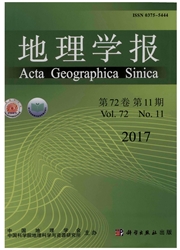

 中文摘要:
中文摘要:
农村居民旅游消费的兴起和行为变迁是乡村转型的组成部分,也是新常态下推进农村居民消费和旅游业转型升级的重要依托。构建嵌入农村家庭结构的旅游行为机制分析框架,以苏南农村地区为例,运用多分类Logit回归等方法,探讨发达地区农村家庭旅游目的地选择行为特征与机制。研究表明:1农村家庭旅游目的地选择以周边地区为主,流向呈现近距离指向性,旅游行为意向较强,旅游消费结构有待完善,旅游行为存在收入、教育和乡村性上的差异;2经济、文化和家庭乡村性对旅游行为有着显著影响,且经济和文化可能存在"拐点"效应,拐点前后旅游行为存在较大差异;感知旅游行为控制与旅游行为认同是内在心理因素,旅游行为存在不同影响强度与方向的棘轮效应、示范效应、敏感效应和预防效应;3农村家庭旅游目的地选择行为是心理、经济、文化和乡村城镇化等多重因素综合作用的结果,农村城镇化发挥着"持续强化效应",经济收入和文化水平发挥着"倒U型阶段效应",消费心理发挥着"双向均衡效应"。研究尝试挖掘中国特色的旅游研究问题,并引导和优化农村居民旅游行为。
 英文摘要:
英文摘要:
The rise and behavior change of rural residents' tourism consumption are components of the rural transformation, and also the important support of the transformation and upgrading of rural residents' consumption and tourism industry under the new normal. The study of tourist behavior has always been a hot area at home and abroad, in which the urban residents are mainly focused, while the rural residents are less discussed. The paper, in the case of rural areas of southern Jiangsu Province, builds the mechanism analysis framework of tourist behavior embedded in rural households, using the multinomial Logit model to discuss the characteristics and mechanism of rural households' tourism destination choice behavior in developed regions.This research shows that:(1) Rural households give priority to surrounding areas in terms of tourism destination choice, therefore, tourism flow is characteristic of close directivity and is in line with the distance decay, 80% of the tourist markets of rural households are distributed in a range of 250 km. On the whole, tourism consumption level is relatively low and consumption structure remains to be improved. Rural households have strong intention of tourism behavior which has great differences between one-day tour and multi-day tour. Tourist behavior also varies a lot in households' income, education background and family rurality.(2) Economy,education background and family rurality have significant impacts on tourist behavior.Especially households' education background and economic income are likely to produce inflection point effect, and tourist behavior varies greatly before and after the point. The inflection point of education background is high school level, at which tourist behavior has significant changes. With income up to 30000 yuan, rural households have intense tourism behavioral intention, while up to 70000 yuan, tourist behavior has no significant changes.Perceived tourism behavior control and tourism behavior identification are inner psychologica
 同期刊论文项目
同期刊论文项目
 同项目期刊论文
同项目期刊论文
 期刊信息
期刊信息
